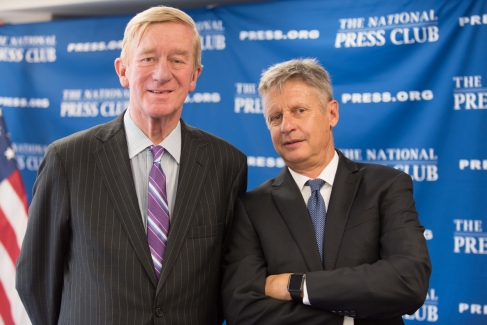 Libertarian candidate, Gary Johnson, has taken a stand on gun control and believes that “Restrictions on gun ownership will only encourage outlaws to have heavy ammunition and high calibre weapons.”Also, in terms of gun-free zones, he believes that the majority of shootings are happening because they are located in gun-free zones.
Libertarian candidate, Gary Johnson, has taken a stand on gun control and believes that “Restrictions on gun ownership will only encourage outlaws to have heavy ammunition and high calibre weapons.”Also, in terms of gun-free zones, he believes that the majority of shootings are happening because they are located in gun-free zones.
What is interesting, however, is Johnson’s Vice President William Weld. Johnson explicitly takes a conservative outlook on gun control, whereas, William Weld has taken the opposite stance in the past. In 1993, Weld urged bans on most assault weapons in Massachusetts and the sale of handguns to anyone under 21. He also proposed a five-day waiting period for all handgun purchases in Massachusetts to allow for background checks.

Now Weld states, “Today…I would make some different choices. Restricting Americans’ gun rights doesn’t make us safer, and threatens our constitutional freedoms.”
Much like Trump defending himself against allegations of him groping women eleven years ago stating that he’s changed, Weld uses the same strategy. Weld states that, “Today, almost 25 years later, I would make some different choices.” Though this might have been an effective strategy if Weld wasn’t involved in politics, Weld took a stance on restricting gun rights and it’s not likely that his personal beliefs have changed. Weld did provide a defense stating, “…frankly, the people I represented were demanding action.” But this defense makes the public view Weld as noncommittal to his ideas and wavering in his stance on important issues.
Like Trump, it seems that the past plays a significant role in choosing to vote for a specific candidate. Because Weld actually took action in 1993 and urged an assault weapons ban, it’s likely that people will see Weld as a supporter of gun control and not an advocate for the Second Amendment. Weld’s defense could hinder the validity of the Johnson-Weld team because it would appear that the Libertarian candidate’s position on issues, like gun control, are only determined by what the public is saying at that particular time and not based on their beliefs.
